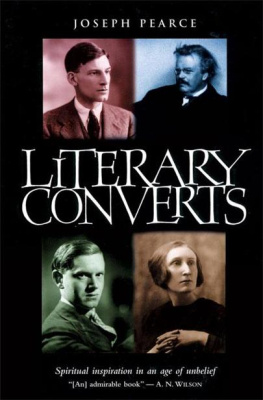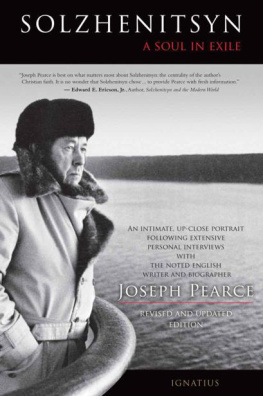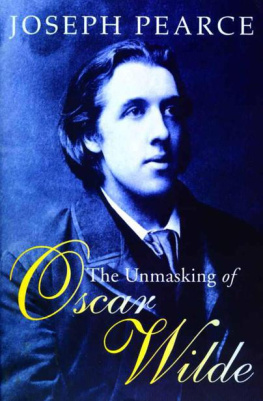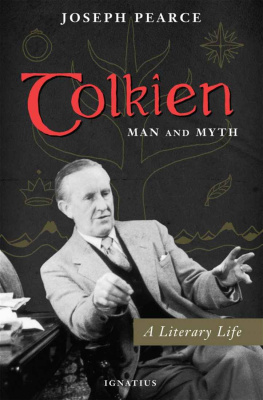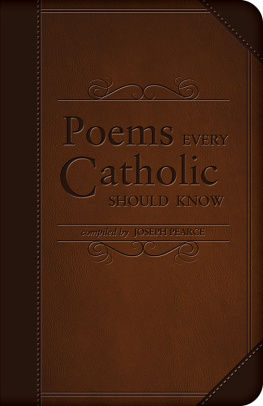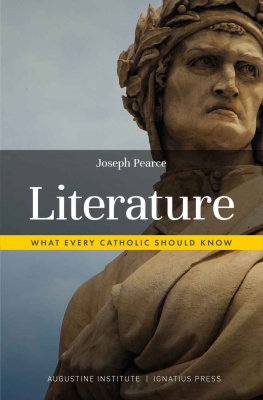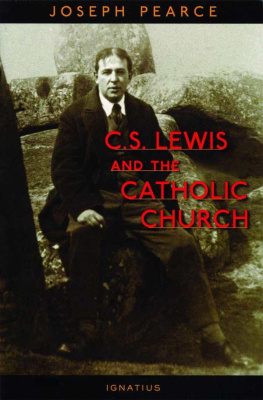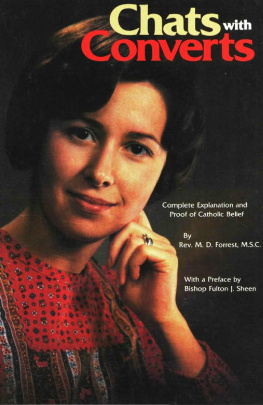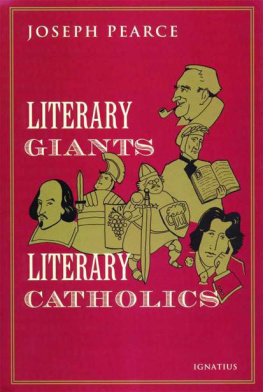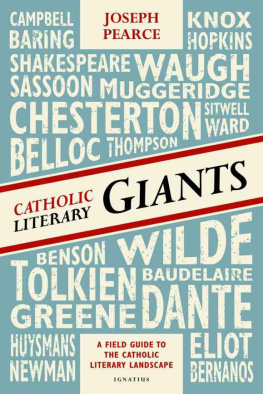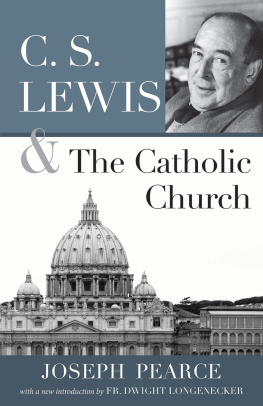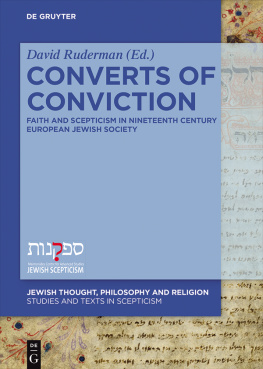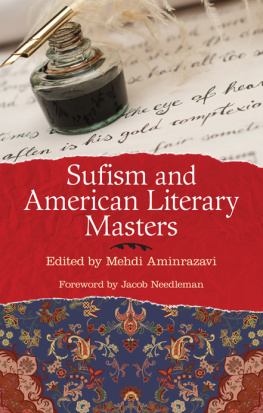LITERARY CONVERTS
JOSEPH PEARCE

IGNATIUS PRESS SAN FRANCISCO
First published in Great Britain by HarperCollinsPublisher
under the title Literary Converts
Copyright 1999 by Joseph Pearce
All rights reserved
New edition reprinted by permission
Joseph Pearce asserts the moral right
to be identified as the author of this work
Title art designed by Stephen Raw
Photographs on the cover are reproduced courtesy of
the National Portrait Gallery, London,
and The G. K. Chesterton Study Centre:
Siegfried Sassoon, G. K. Chesterton,
Evelyn Waugh, Edith Sitwell
Reprinted in 2000 and 2006 by Ignatius Press, San Francisco
ISBN 978-0-89870-790-8 (HB)
ISBN 0-89870-790-0 (HB)
ISBN 978-1-58617-159-9 (PB)
ISBN 1-58617-159-3 (PB)
Library of Congress catalogue number 99-68463
Printed in the United States of America
For my Mother and Father
Conversion is like stepping across the chimney piece out of a Looking-Glass world, where everything is an absurd caricature, into the real world God made; and then begins the delicious process of exploring it limitlessly.
EVELYN WAUGH
CONTENTS
ACKNOWLEDGEMENTS
I HAVE been most fortunate to receive invaluable assistance from a whole host of people, including friends, relatives and associates of those writers who form the basis of this study. Those who have rendered assistance include, in no particular order of priority: Brocard Sewell, O. Carm., Aidan Mackey, Christina Scott, Sister Juliana Dawson, Christopher Derrick, Stratford Caldecott, Walter Hooper, Leslie von Goetz, Mrs Graham Greene, Professor Norman Sherry, Dr Barbara Reynolds, Patrick Heron, David Gill, Father Charles Smith, Julia Ross Williamson, George Sassoon, Rupert Hart-Davis, Barbara Wood, George Sayer, Gregory Wolfe, Iain T. Benson, Richard Ingrams, Lady Hedwig Williams, the Rt Rev. Cormac Murphy OConnor and John Seymour. I must record a special debt of gratitude to Owen Barfield and Douglas Hyde, both of whom offered me their time and assistance in spite of ailing health. Sadly, they both passed away before this volume could be completed.
I am grateful to A. P. Watt Ltd for granting permission on behalf of the Royal Literary Fund to publish extracts from several poems by G. K. Chesterton, and for permission, on behalf of The Trustees of the Maurice Baring Will Trust, for permission to include several extracts from Barings verse. I am indebted to George Sassoon for permission to quote from his fathers poems, and to the Peters, Fraser & Dunlop Group Ltd for permission to include extracts from the poetry of Hilaire Belloc.
James Catford and Elspeth Taylor have continued to display the utmost faith in my work, for which I am deeply grateful, and I must acknowledge the efforts of Kathy Dyke and the others at HarperCollins who work tirelessly to bring my efforts to fruition.
I cannot conclude without mentioning Sarah Hollinsworth and Alfred Simmonds, both of whom have continued to offer both practical and moral support.
PREFACE
I N 1905, the young G. K. Chesterton published Heretics , a volume of essays in which he precociously criticized many of his contemporaries, including, most notably, both Shaw and Wells. One critic responded to Heretics by stating that Chesterton should not have condemned other peoples heresies until he had stated his own orthodoxy. Chesterton accepted the criticism and rose to the challenge. In 1908 his Orthodoxy was published. Its central premise was that the most profound mysteries of life and human existence were best explained in the light of the Apostles Creed.
Chestertons coming out as a Christian had a profound effect, similar in its influence to Newmans equally candid confession of orthodoxy more than fifty years earlier. In many ways it heralded a Christian literary revival which, throughout the twentieth century, represented an evocative artistic and intellectual response to the prevailing agnosticism of the age. Dr Barbara Reynolds, the Dante scholar and friend and biographer of Dorothy L. Sayers, described this literary revival as a network of minds energizing each other. Besides Chesterton, its leading protagonists included T. S. Eliot, C. S. Lewis, Siegfried Sassoon, J. R. R. Tolkien, Hilaire Belloc, Charles Williams, R. H. Benson, Ronald Knox, Edith Sitwell, Roy Campbell, Maurice Baring, Evelyn Waugh, Graham Greene, Muriel Spark, Dorothy L. Sayers, Alfred Noyes, Compton Mackenzie, David Jones, Christopher Dawson, Malcolm Muggeridge, R. S. Thomas and George Mackay Brown. Its influence spread beyond the sphere of literature. Alec Guinness, Ernest Milton and Robert Speaight were among the thespians whose lives were interwoven with those of their Christian literary contemporaries.
The publication in 1891 of the Papal social encyclical Rerum Novarum had a profound influence on Belloc and, through him, on Chesterton. This ensured that the Christian literary revival had a political dimension. Belloc and Chesterton countered the socialism of Shaw and Wells with the social teaching of the Church, which they called distributism. Eric Gill sought to put the distributism espoused by Belloc and Chesterton into practice, and E. F. Schumacher popularized distributism in the late 1970s with his hugely influential Small is Beautiful . In much the same way that Shaws mixture of Nietzschean philosophy and Marxist socialism had coloured and characterized his literary works, the mixture of Christian theology and the small is beautiful teaching of the Church would colour and characterize much of the literature of the Christian literary revival.
Taken as a whole, this network of minds represented a potent Christian response to the age of unbelief. It produced some of the centurys great literary masterpieces and stands as a lasting testament to the creative power of faith. The story of how these giants of literature exerted a profound influence on each other and on the age in which they lived represents more than merely a study of one important aspect of twentieth-century literature. It is an adventure story in which belief and unbelief clash in creative collision.
[CHAPTER ONE]
WILDE THROUGH THE LOOKING-GLASS
T HREE weeks into the new century, on 22 January 1901, Queen Victoria died at Osborne House. She had reigned for more than sixty years. As the nation mourned the passing of an era many felt a portentous element in the solemnity of the occasion. The young G. K. Chesterton, still unknown to the reading public, wept when he heard the news of her death.
However, the Victorian twilight marked a beginning as well as an end. The dawn of the Edwardian era coincided with the opening of a new century and heralded the birth of a new generation of future writers. The new arrivals included C. S. Lewis, Evelyn Waugh, Malcolm Muggeridge and Graham Greene, to name but a few.
The world inherited by this new generation had been coloured by scepticism and religious doubt. Christopher Dawson described the late Victorian era as a low water mark in the Christian world - the age of Combes and Signor Nathan and Giolitti: an age of anti-clericalism and materialism and Fabian socialism, without any great movement on the Catholic side to compensate.
In 1903, the year of Muggeridges birth, Bernard Shaw, the champion of Fabian optimism, had published his play, Man and Superman . A witty attack on traditional attitudes towards courtship, marriage and the relations between the sexes, it echoed in its title the elitist philosophy of Nietzsche. Nietzsche had died in 1900, after twelve years of insanity, the most outspoken philosophical foe of Christianity to emerge in the late nineteenth century. Convinced that Christianity was bankrupt, he proclaimed Schopenhauers will to power and emphasized that only the strong ought to survive. He maintained that Christian charity only served to perpetuate the survival of the weak and the mediocre. His major work, Also sprach Zarathustra , developed the idea of the superman or overman (the Ubermensch) who would overcome human weakness and vanquish the meek. In his Jenseits von Gut und Bse ( Beyond Good and Evil ) he claimed that morality should be based on the axiom that nothing is true; everything is allowed and he continued his war on the weak by maintaining that the suffering of slaves is insignificant because almost everything we call higher culture is based upon the spiritualizing and intensifying of cruelty.
Next page
